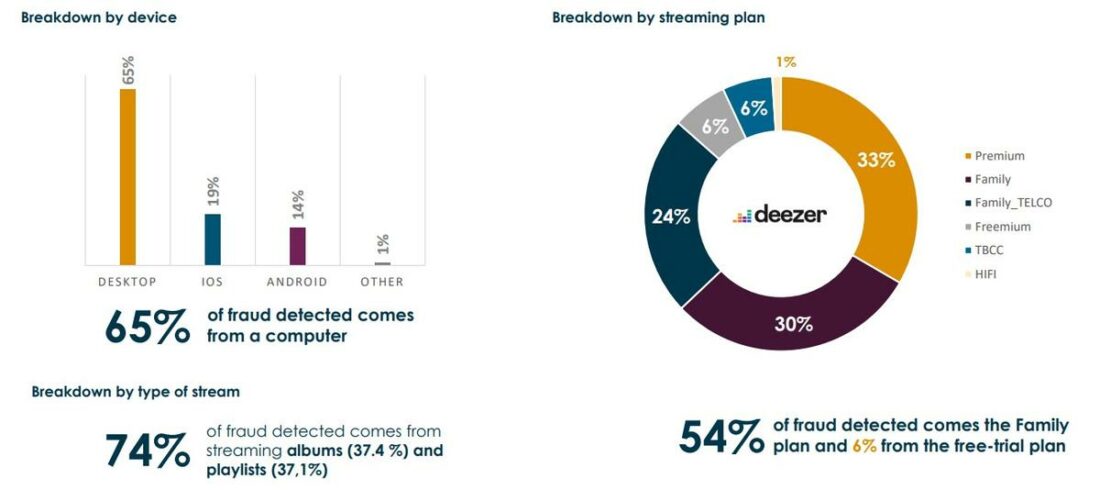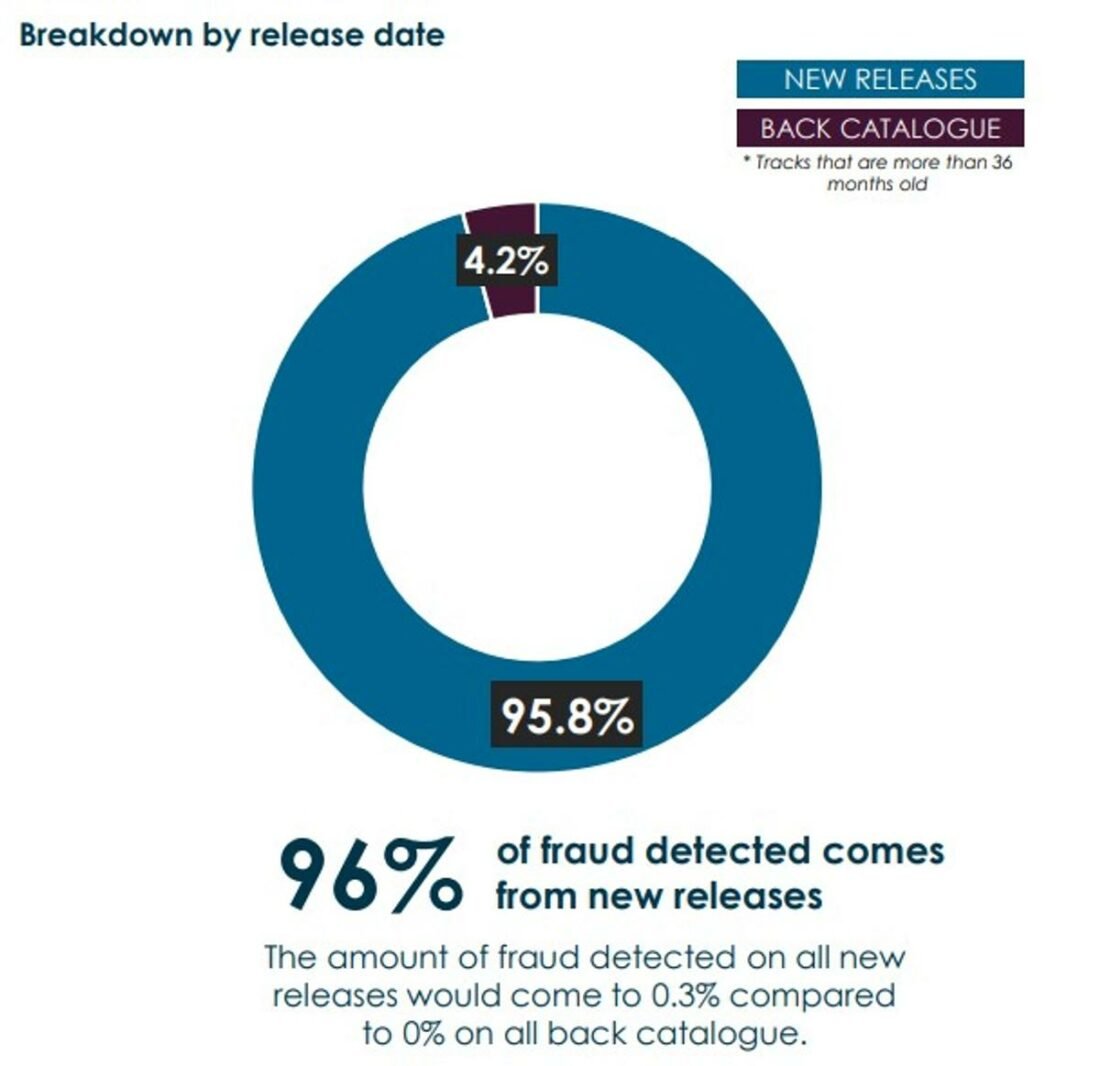He also needs to pay back what he earned on the platforms, plus a fee.
An unnamed 53-year-old man from East Jutland, Denmark was sentenced to 18 months in prison on Thursday due to music streaming fraud. The Aarhus court found him guilty of using bots and fake accounts to artificially inflate play counts on hundreds of his tracks.
This gave him at least 2 million Danish kroner ($290,811) in royalties between 2013 and 2019, ultimately making him the country’s 46th highest-earning composer from 2014 to 2017.
The Man and His Scheme

The Danish Rights Alliance reported that the defendant owned 69 accounts on platforms like Spotify, Apple Music, and YouSee Musik. On Spotify alone, he had 20 accounts.
He was originally accused of making around DKK 4.38m (US$600K) from fake streams. But, the court said it didn’t have enough data to confirm the exact amount. Yet, they determined that the man had made at least 2 million Danish kroner (around US$300K) from fake streams.
Aside from fake streams, the unnamed man from East Jutland also stood guilty of copyright violation for 37 tracks.
Most of these songs were altered versions of existing music. Only the length and tempo of the tracks were changed and then uploaded under his name.

The Verdict
Alongside the 18-month prison sentence, the court ordered the seizure of 2 million Danish kroner, divided between him and his company. It also levied a 200,000 Danish kroner fine against him.
Since this is the country’s first case of the violation, the verdict received widespread praise.
Maria Fredenslund, CEO and founder of the Danish Rights Alliance, said the ruling emphasized the gravity of the crime.

Anna Lidell, the newly-elected chair of the collecting society KODA, had similar sentiments. She cited the case’s importance in protecting artists’ rights.
Senior specialist prosecutor Amir Amirian noted how the decision sets a legal benchmark for future cases. It also serves as a strong warning to potential fraudsters.

The Industry’s Battle Against Streaming Fraud
A 2021 study conducted by France’s Centre national de la musique (CNM) found fake streams on popular services like Spotify (1.1%), Qobuz (1.6%), and Deezer (2.6%).
This reveals a systemic problem that distorts streaming data, taking away royalties from artists who deserve them.

Rasmus Rex Pedersen, an associate professor specializing in music streaming research at Roskilde University, criticized the industry for its slow reaction.
Groups like the International Federation of the Phonographic Industry (IFPI) and Bundesverband Musikindustrie (BVMI) took legal action to break up networks involved in streaming manipulation. A notable win was the closure of SP-Onlinepromotion.com, a German service known for selling fake streams.
Preventative Strategies in Place

According to industry experts, the fight against streaming fraud needs innovative methods for its detection. Following CNM’s study, Spotify updated its royalty system to address three primary concerns:
- Fake Streams: Spotify now charges labels and distributors if they detect high fake streams on their songs. They also improved their fake stream detection technology and are working with others in the industry to fight fraud.
- Fair Compensation: In 2024, songs must have at least 1,000 streams a year to earn royalties. This rule tackles the problem of artists not getting paid for songs with few streams because of fees. By focusing on songs that are played more, Spotify ensures the money goes to artists who need it.
- Gaming the System: Creators make money from white noise and nature sounds by making these tracks shorter and putting them in playlists to get more streams. Spotify now only pays royalties if these tracks are longer than two minutes. They also have a lower payout than music streams.

Deezer is also acting against streaming fraud, especially because of the rapid increase in AI-generated music.
The move involves creating tools that recognize and tag music made by AI. These tags inform artists, labels, and listeners about the origin of music on their platform. Deezer’s Radar technology also detects AI content by scanning and identifying songs, including altered ones.
